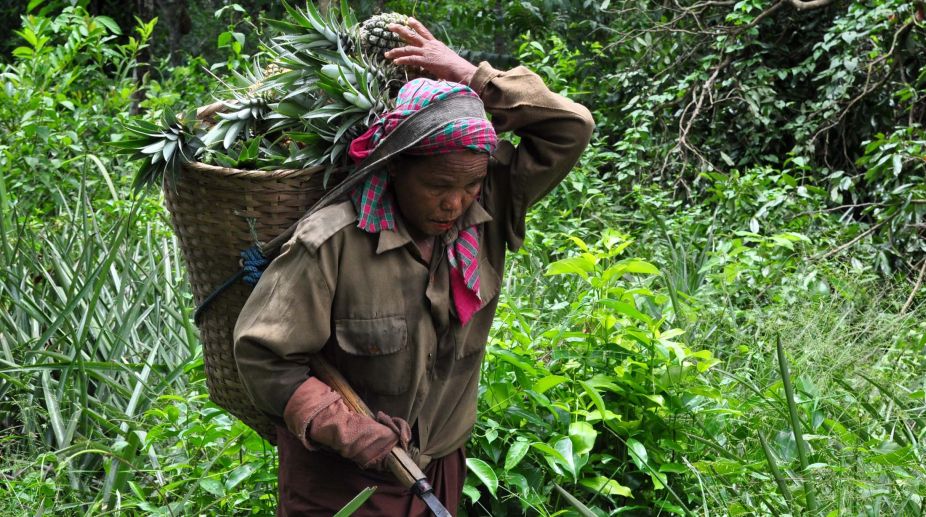There is little food left at home, and no monetary aid or medical assistance on the horizon. They cannot even afford to fall sick amid the COVID- 19 lockdown. The people of Kali Krishna village of Tripura are on edge, literally, living as they are on a narrow strip of land on the Indo-Bangladesh border.
The village stands hemmed in between the international border and the barbed wire fence India has erected 150 yards away from it on its side.
Advertisement
Jahangir Hossain, a peasant, is among the 3,000 odd neither-here-nor-there people for whom the March 24 lockdown came as a bolt from the blue as the border gates closed abruptly at midnight hour, shutting them out from the rest of the country.
Fear and uncertainty have gripped people in the godforsaken place.
“We do not know who to approach for assistance, as the officials on the Indian side are not opening the gates. We are trapped here,” 42-year-old Hossain told a PTI by phone.
India has raised barbed wire fences across its 4,096- km border with Bangladesh, 150 metres ahead of the zero line, in accordance with the 1971 Indira-Mujib pact.
Another resident of the neighbouring Nabadeep Chandra Nagar village, who preferred not to be named, said some villagers, with no solution in sight, were entering Bangladesh to buy essentials, and sell poultry and agricultural produce.
Subrata Majumder, the sub-divisional magistrate of Sonamura in Tripura’s Sipahijala district, insisted people living on the other side of the fence visit Bangladesh often to buy and sell items, and that there is nothing new about it.
According to BSF Chief Public Relations Officer C L Belwa, certain guidelines have been issued to the paramilitary force as part of the efforts to contain the spread of COVID- 19, but claimed its local unit has been distributing food and other essential items among those stuck outside the fence.
Selim Khan, a resident of Nabadeep Chandra Nagar Village, however, alleged that the rations they receive is not enough to sustain a family.
“With the gates closed on the Indian side, we are facing difficult times buying essential supplies and tending to our fields, part of which fall in the mainland. Add to that, our food stock is depleting fast, he added.
Shyamal Muhuri, a member of the Kali Krishna Nagar panchayat, said the villagers had been told to come to the mainland but they refused.
“We made an appeal to the villagers to shift to the Indian side, but they refused to respond to the plea, claiming that their livelihood would be at stake. They also said that there would no one to look after their houses, land, poultry and cattle, if they were to move to the mainland,” Muhuri told PTI.
Echoing him, Joydeb Sarkar, a local leader of the ruling BJP, said his party had called upon the villagers to take shelter in government buildings, but they turned down the offer.
“People living on the other side of fence are mostly daily wagers, having no permanent source of income. We are looking for government land for their rehabilitation and resettlement, but the process is taking longer due to unavailability of a suitable plot, he added.











